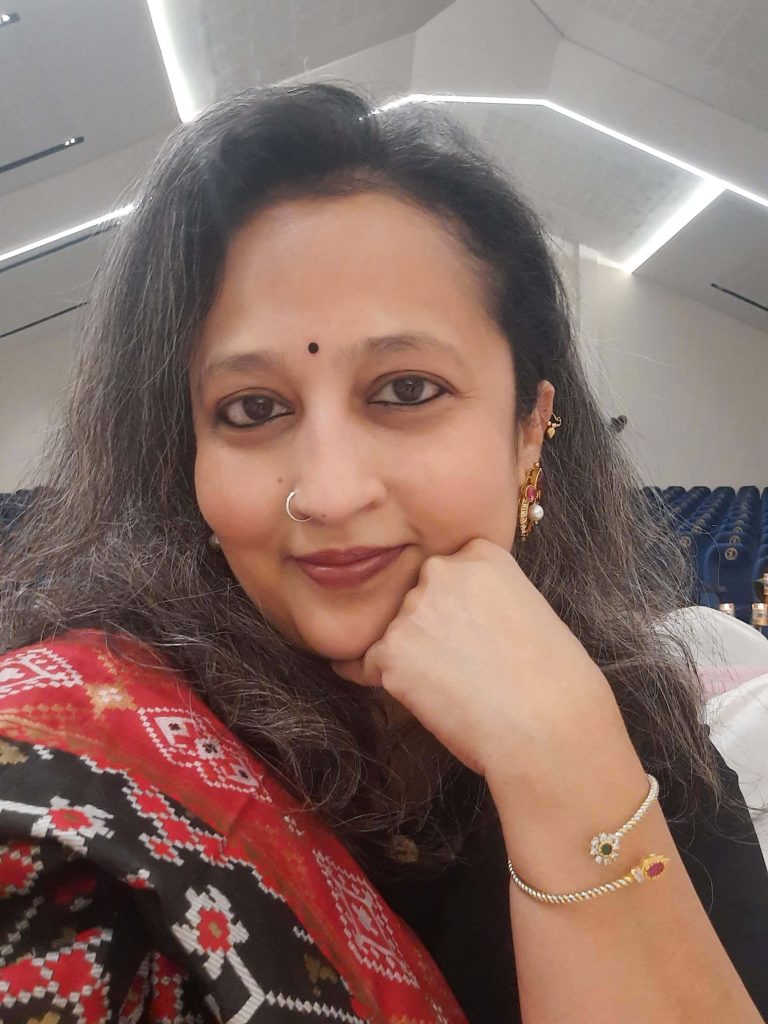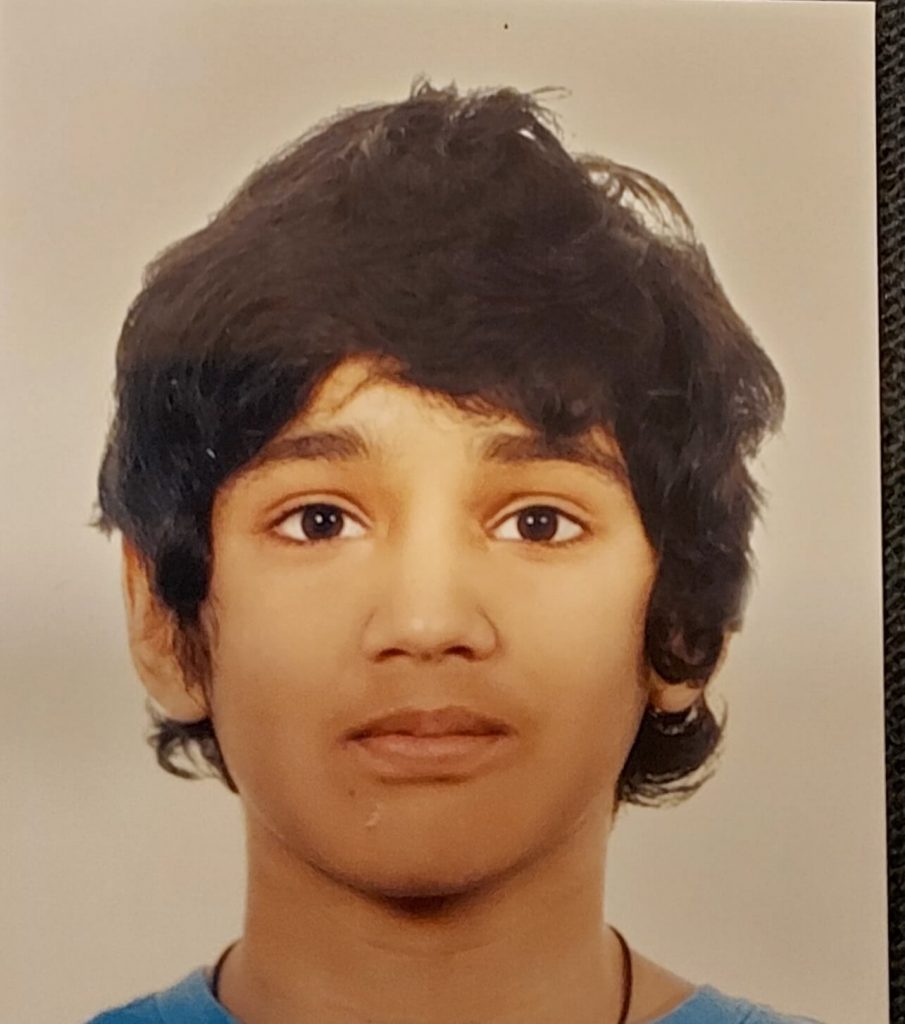Our Schools
Work Exposure Programme is our summer internship initiative at Ekya and sister institution CMR National Public School, to help senior school students groom their problem-solving skills, adaptability, emotional intelligence, resilience and the ability to collaborate. With the WEP drawing to a close, we sit with Rajkaushik Ramkumar of Grade 11 from Ekya School ITPL, as he shares his account from his internship at The Actors Collective.
What was going on your mind while applying for the WEP? Why did you choose The Actors Collective?
I was comfortable with the application process – simple and to the point; the questions asked were direct and easy to answer. What I liked about the whole thing was the choices we had with our internships; each company was well defined and had objectives that helped me while applying. Looking through the options available, I tried my luck at three programmes – The Actors Collective, Bangalore Football Club and FonePaisa.
I have always had an affinity towards theatre. I love to act and was interested in spending my summer at a programme that would help me take a step towards the art. Initially, I was expecting to take a technical role at The Actors Collective, along the lines of event management. But what I had in store for the next three weeks had me completely in surprise.
Take us through your experience at The Actors Collective.
During the first week of our internship, the five of us got to meet Mr. Rajesh and the folks from The Actor’s Collective. We were given two objectives, one was to take five photographs that depict different moods and the other was to watch a live action play.
Over the course of the week, we met to discuss the photographs that we had taken, dissecting each emotion that we managed to capture. It was an eye-opening experience for me, to understand how much goes into understanding a facial expression or an abstract photograph.
We got to understand the working of The Actors Collective, their specialization in Playback Theatre and how they teach the art form at their workshops. We were introduced to basic concepts during the second week, having met with a couple of actors from the Collective at Cubbon Park to practice playback theatre with them. At the end of the session, we were briefed about the financial model and how this company of actors arranged for shows across the country.
We visited Diya Ghar, an NGO for children from underprivileged and lower-economic communities. The idea behind this visit was to understand the role of empathy, while also interacting with the children. I got to teach them the alphabet and a couple of rhymes. It was a humbling experience for me – I realized that there things that are bigger than us that we often take for granted.
During our third week, we attended a workshop on playback theatre, learning more about the two forms of Playback, Conflict and Tableau. We got to practice with the actors from the Collective, getting advice, tips and critique on our expressions, posture and other techniques.
Towards the end of our internship, we spent our time at the Spastic Society of Karnataka. Here we met children suffering from Down’s Syndrome and helped them with their preparation for a skit they were putting up. They didn’t let their disability hinder their excitement or the fun they had and it left a big impact on me.
Did you enjoy your time with The Actors Collective? What do you think is the key learning from this experience?
This internship programme has been an experience I will never forget. I learned a form of theatre, I got to meet actors and learn from them, I understood how to pursue theatre and be part of a troupe, I met underprivileged children and those with disability, helping them, in whatever way I can. It has been a range of emotions for me, but the three key takeaways from my time with the Actors Collective are,
Teamwork: I realized the importance of working together. Whether it was performing Playback or a daily task of reaching a location with the other interns, I learnt that working as a team can take anyone far in what they do.
There is no right or wrong: Every decision made has its own justification. Everyone has a different view or perspective on things, which makes these decisions neither right nor wrong.
There are things bigger than me: My three weeks has taught me that I need to appreciate and be thankful for everything is good in my life and that there are always things bigger than us. I will definitely see my problems in a different light after this internship. The workshop also helped, as I can act out different elements of a situation and find out where the core problem of the situation is.
In the beginning, I thought the programme would turn out to be objective, with a set of tasks to complete. It turned out to be an experience after another experience. Mr. Rajesh kept giving us ideas and things to do. The actors made sure we were comfortable and answered every question we put to them. I can’t wait to see them again, at one of their performances.
Rajkaushik is one of the 3 children from Ekya Schools and CMR National Public School who is interning at The Actors Collective through our Work Exposure Programme.
How to Make Your Summer Holidays Productive – Parents of Ekya
- Start with your goal and work backwards.
- Pick an opportunity and run with it.
- Play it by the ear and just go without a plan.
Planning before the holidays begin
One of the best investments of time, well before the summer holidays begin, is to plan. The plan is to identify what we would want our children to learn, do or experience during holidays.Write down your larger goal (*s)
One of the first things you should do is write down what you want out of these vacations, on a piece of paper. It might be one or a mix of multiple of this. I want to create experiences for my child (and myself) like …… I want to ensure that he/she catches up / moves to the next level on ... sports activity, or music or…. I want him/her to get physically fit…. Or, I want our family and my child to use this time to engage with cousins, relatives, or grandparents. Once the larger goals are written down, it is time to define finer details, exploring requirements and planning the route ahead.
Draw a schedule
Unlike school days, where a timetable is chalked up by the school, the summer-break schedule rests completely in the hands of the parents. Start by breaking the schedule up into weekly or daily or hourly objectives. Based on what parent and child’s mutual interest are, you should be able to draw an eight-week timetable. I call it a timetable because it can be planned meticulously like the one in school. With a well-planned timetable and activities to do every day, it is highly possible that the summer-break will whisk away in a jiffy, leaving both the parent and children to ask, "Where did all the holidays go?".Summarise your experiences daily, weekly
Make your children responsible for their learnings and experiences and have them to share these often. A simple question like what they have learnt or enjoyed at the end of each day or the week is important as it helps in giving them a sense of progress or achievement. At our home (we have three kids), on every weekend, we would sit and discuss how we are doing on our holidays and what we had done for the week. We would excitedly look forward to the next week’s plan and again share that experience that same week. I find that such engagements not only serve as a wonderful opportunity to bond with children but also bring them a sense of continuity and purpose.Creating experiences
In case you want your child and you to share experiences of culture and travel, then it is important you plan what experiences and what culture are you going to seek during the break. To quote a personal experience, in 2017 we went on a 49-day road trip, driving 10,000 km across North and West India. We travelled high altitudes of 12000 feet, along the border with Pakistan, sledged on the snow in Kashmir, experienced the heat of Rajasthan, stayed on a houseboat, a tent overlooking the Himalayas, a few homestays, and resorts. And when we were in the car for 200 odd hours, we played many games of wordplay, games and had extempore speeches. We never imagined that we could do this, but since we had already written down our goals, we could experience the rich cultures and places that India has to offer.Towards the end of this summer-break, we had planned a relaxed road trip to Bhutan and North East and here we are in 2018, looking forward to another exciting trip on the unchartered waters of the North East!
Here are some good starting points from the Internet
- 100 Productive Ways to Spend Your Summer Vacation ...
- 11 Goals You Should Set This Summer - Odyssey
- 37 Productive Things to Do During the School Holidays - Daniel Wong
Ekya Summer Stories – Urja Srivastava
 It felt like everyone had taken an oath to be non-judgmental, friendly and helpful, creating a homely atmosphere at digital detox camp.
Sometimes members would throw in some jokes also, just the way a brother or sister would do to make you laugh :D
It felt like everyone had taken an oath to be non-judgmental, friendly and helpful, creating a homely atmosphere at digital detox camp.
Sometimes members would throw in some jokes also, just the way a brother or sister would do to make you laugh :D
 Besides the camaraderie, every day was a new adventure. We worked in teams to bake, create stories, played charades and even brainstormed to create a business model.
Unlike other summer camps, digital detox taught us so many different things in just five days without being preachy. We had hands-on experience in Composting, Astronomy, Photography and Theatre.
Each day in digital detox felt like a new adventure...And guess what?? IT ACTUALLY WAS....!”
Besides the camaraderie, every day was a new adventure. We worked in teams to bake, create stories, played charades and even brainstormed to create a business model.
Unlike other summer camps, digital detox taught us so many different things in just five days without being preachy. We had hands-on experience in Composting, Astronomy, Photography and Theatre.
Each day in digital detox felt like a new adventure...And guess what?? IT ACTUALLY WAS....!”




















Leave a reply